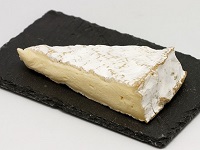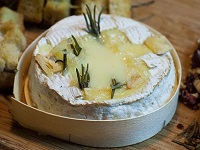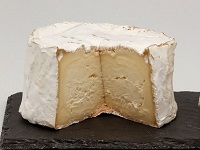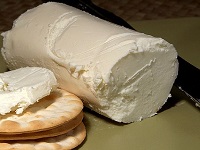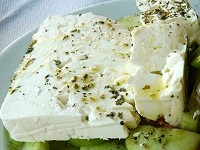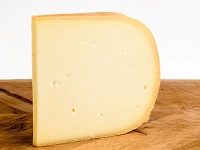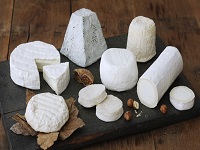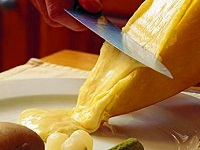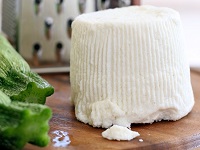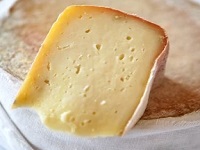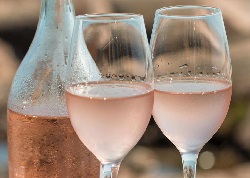Cheverny Blanc (France)
Cheverny Blanc is a wine based on Sauvignon Blanc, and smaller propotions of other Loire grapes (Arboies, Chardonnay, Chenin Blanc, Menu Pineau, Sauvignon Gris).
Cheverny Blanc wines are often compared with the wines of Sancerre and Pouilly-Fumé.
Cheverny Blanc Flavors
Apple, Lemon Zest, Grapefruit and White Peach are typical Cheverny Blanc flavors.
Hints of Anise, Herbs, White Flowers and Minerals.
Apple |
Lemon Zest |
Grapefruit |
Peach |
Herbs |
Anise |
Lily |
Mineral |
Cheverny Blanc Profile
Cheverny Blanc is known to be dry, fresh, and flavorful:
| SUGAR: | Dry (3 g/l) |
| BODY: | Medium |
| FRUIT: | Medium |
| ACIDITY: | High |
| ALCOHOL: | 12-13% ABV |
| Serving temperature: 10-12°C (50-54°F) | |
Cheverny Blanc Food Pairing
Cheverny Blanc is super food friendly, especially with Seafood, Fish and Vegetables.
It is also superb with Thai and Japanese food and any Chicken dish.
Aperitif |
Salads |
Vegetables |
Asparagus |
Tapas |
Fish |
Seafood |
Sushi |
Sandwitch |
Chicken |
Turkey |
Pork |
Aperitif. Apetizers.
Vinegar. Green Salad. Vegetables. Tapas.
Asparagus. Cucumber. Avocado.
Artichokes. Fennel. Capers. Tomatoes.
Fish. Seafood.
Crab. Lobster.
White Fish. Citrusy Sauce.
Salmon. Trout. Sushi. Sashimi.
White Meat.
Chicken. Turkey. Pork.
Herbs.
Parsley. Basil. Thyme. Mint. Rosemary. Coriander.
Cheese.
Goat Cheese. Feta.
The Ideal Glass for Cheverny Blanc
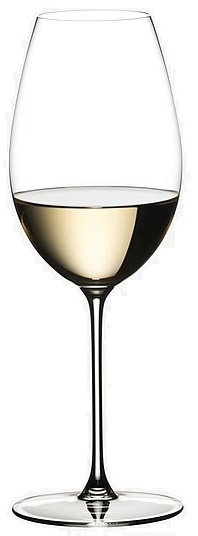
|
The Sauvignon Blanc glass is smaller than a Chardonnay glass.
It has a more narrow bowl to concentrate the crisp and citrusy aromas of a zesty and fruity white wine. |
Cheverny Blanc Cheese Pairing
Cheverny Blanc is known for its crisp and fruity profile. It pairs well with a variety of cheeses.
Opt for cheeses with moderate saltiness and creaminess to balance the Cheverny Blanc's acidity.
Add fruits (grapes, apples, pears), nuts (almonds, walnuts), or a light drizzle of honey to enhance the pairing.
Fresh and Mild Cheeses
Goat Cheese (Chèvre): The tanginess complements the subtle fruit notes in Cheverny Blanc.
Ricotta: Especially good if served with a drizzle of honey or fresh fruits.
Mozzarella: Its delicate flavor pairs well with the wine's lightness.
Soft Cheeses
Brie: The creamy texture and mild flavor work beautifully with Cheverny Blanc.
Camembert: Similar to Brie but with slightly more earthiness.
Fontina: Its nutty, buttery qualities make a good match.
Semi-Hard Cheeses
Gruyère: Mildly nutty and sweet, enhancing the wine's subtlety.
Manchego: A classic Spanish pairing, especially younger Manchego, which is less intense.
Asiago: Lightly aged Asiago adds a complementary tang to the cheese.
Blue Cheeses (for contrast)
Gorgonzola Dolce: Its mild creaminess contrasts nicely without overpowering the wine.
If You Like Cheverny Blanc
You May Also Like:
About Cheverny
Cheverny is a wine appellation in the Loire Valley wine region of France.
Until getting AOC status in 1993, Cheverny was regarded as one of the best VDQS (Vin de Qualité Superieur) of the Loire.
Wine Region Loire
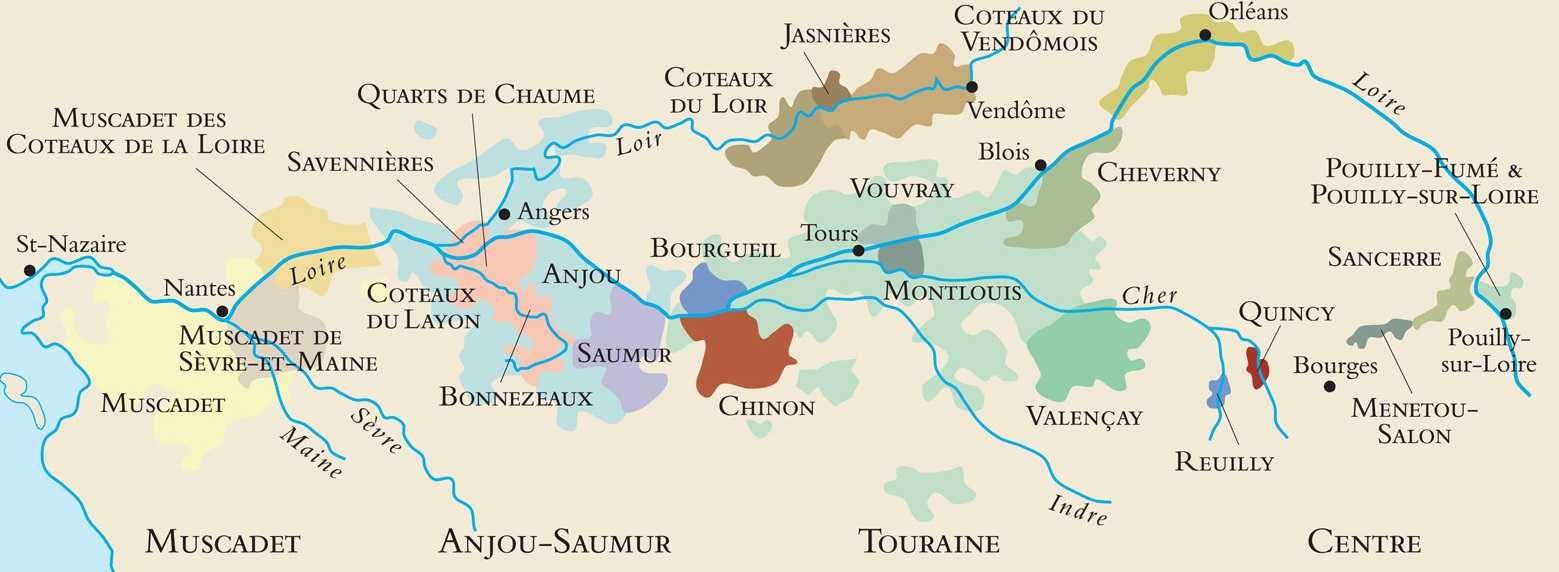
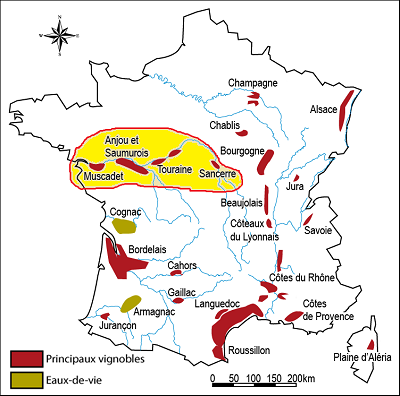
Loire Valley Climate
Different regions are subject to different climate influences:
Lower Loire (Muscadet and Pays Nantais) has a cool maritime climate with high rainfall.
Middle Loire (Anjou-Saumur and Touraine) has a cold climate with a mix of oceanic and continental influence.
Central Loire (Sancerre and Pouilly-Fumé) has a cold continental climate with cold winters and warm summers.
Loire Valley Terroir
The terroir in the Loire Valley is incredibly varied due to its geographic spread:
Lower Loire is known for its granite and schist soils, which give the wines (Muscadet) a distinctive mineral character.
Middle Loire has limestone, clay and sand soils. The Saumur and Touraine soils can be good for both white and red wines.
Central Loire has limestone and silex (flint) soils which give the Sancerre and Pouilly-Fumé wines their signature smoky and mineral flavors.
65% White Grapes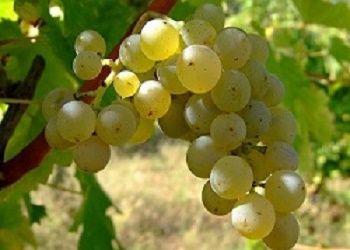
30% Chenin Blanc |
35% Black Grapes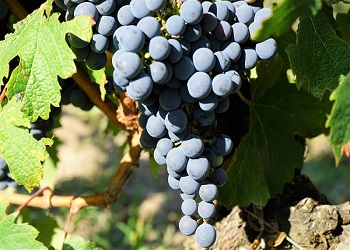
20% Cabernet Franc |
45% White Wines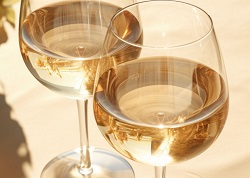
Anjou Blanc |
20% Red Wines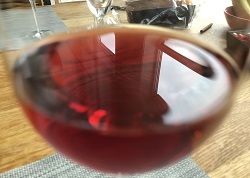
|
20% Rosé Wines
|
15% Sparkling Wines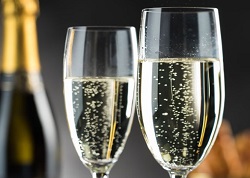
|
